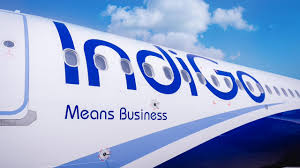India’s dominant low-cost carrier, is strategically expanding its international cargo footprint while cementing the crucial role of its domestic belly cargo operations, which currently account for a substantial 85% of its total volumes. This dual approach signifies a calculated pivot towards global markets with new widebody aircraft, even as the airline remains deeply invested in fostering efficient, eco-friendly logistics within India’s burgeoning economic landscape, aiming to support zero net carbon cities and equitable development.
The airline’s ambitious international foray is currently underpinned by its initial direct long-haul widebody flights from Mumbai to Manchester and Amsterdam, launched in early July 2025. This expansion marks a new chapter for IndiGo, transitioning from its primarily narrowbody operations to leverage the significant belly cargo capacity offered by larger aircraft. The introduction of leased Boeing 787s from Norse Atlantic, with more joining the fleet later this year, signals a clear intent to deepen its presence in European markets, with Copenhagen and London earmarked as next destinations by mid-October. This move is critical for India’s high-value exports, such as pharmaceuticals and electronics, which demand efficient and reliable air freight solutions.
However, the journey has not been without its logistical adjustments. IndiGo is set to conclude its wet-lease agreement for two Boeing 777-300ER aircraft from Turkish Airlines by August 31, 2025. This termination follows a directive from India’s Directorate General of Civil Aviation (DGCA), which, citing national security concerns, declined to extend the lease beyond a final three-month period. This development, while necessitating operational recalibration, underscores the evolving regulatory environment and the imperative for Indian carriers to build indigenous widebody capabilities to support long-haul expansion.
Domestically, IndiGo is actively seeking to unlock fresh demand by developing direct point-to-point cargo connections in smaller, tier-two and tier-three cities. This strategy aims to optimise underutilised belly space on existing domestic sectors, reducing reliance on major hubs and fostering decentralised economic growth. Such initiatives are crucial for a balanced urban development model, supporting sustainable commerce beyond metropolitan centres and empowering local economies. The airline’s impressive growth from 350,000 to 400,000 tonnes in cargo uplift last fiscal year highlights the robust demand within India.
Looking further ahead, IndiGo is preparing for a transformational shift with the induction of Airbus A350 aircraft starting in early 2028, following firm orders for 30 aircraft and an additional 30 under a Memorandum of Understanding. These modern widebody aircraft, along with the impending arrival of 69 Airbus A321XLRs, are expected to significantly enhance IndiGo’s international cargo capabilities, positioning them as “small freighters in the air.” This strategic fleet modernisation is aligned with national aspirations to boost India’s air cargo throughput to 10 million tonnes annually by 2030, an ambitious yet achievable target, provided key infrastructural and regulatory challenges are addressed.
A critical aspect of India’s air cargo growth hinges on optimising its hub strategy and ensuring regulatory consistency. While Delhi and Mumbai collectively handle approximately 70% of India’s air cargo, there is a clear call to strengthen these and a few other well-developed airports for transshipment and international connectivity, rather than attempting to create numerous, less efficient hubs. Harmonising customs rules and processes across airports is paramount to prevent operational disparities that currently incentivise exporters and forwarders to favour certain gateways. By streamlining procedures and investing in high-value exports that justify airfreight, India can truly leverage its expanding airport infrastructure and growing fleet capacity to become a global air cargo leader, fostering inclusive growth and sustainable logistics practices.
Also Read: Noida and Mumbai Airports Announce New Regional Flight Connectivity


